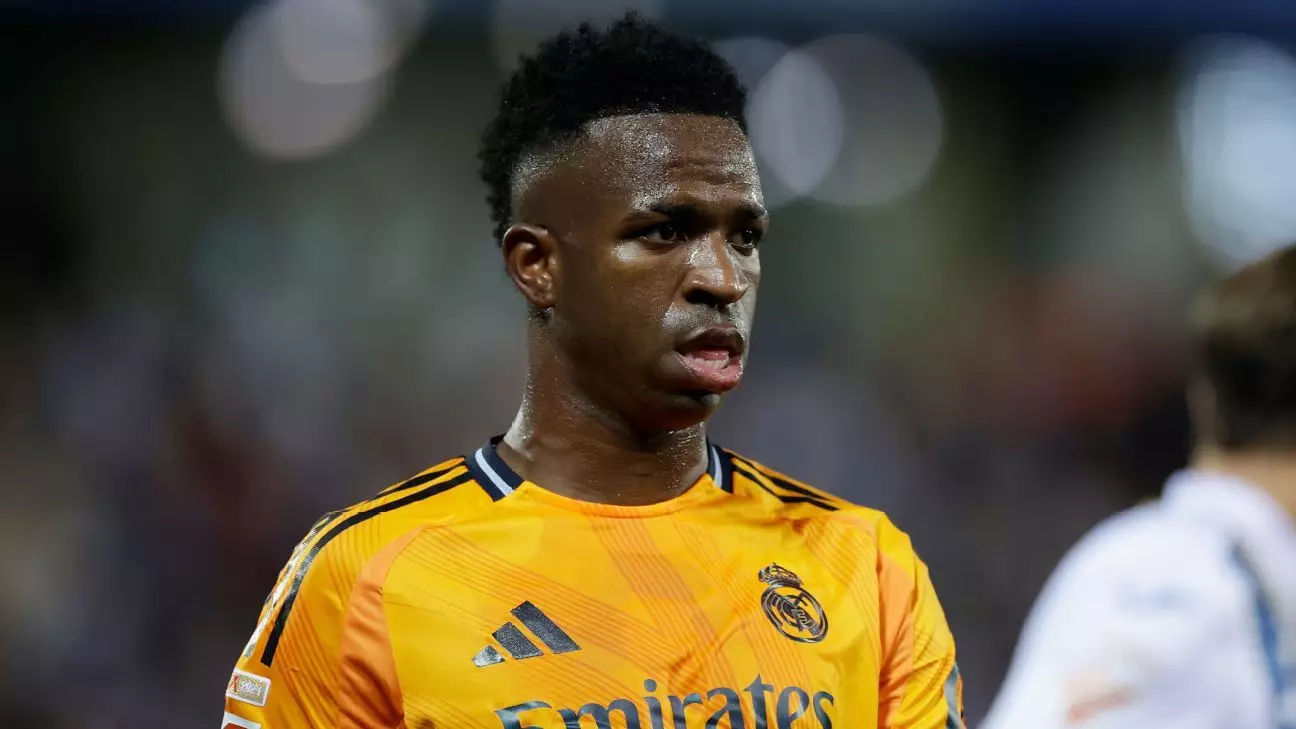In a recent controversy, Brazilian football star Vinícius Júnior found himself at odds with LaLiga president Javier Tebas over accusations of piracy. After missing a crucial Champions League match against Liverpool due to a hamstring injury, Vinícius posted an Instagram story that seemingly depicted him watching the game on a Brazilian television channel from his home in Madrid. This action led Tebas to publicly label it an illegal act, claiming that the player was pirating content by not tuning into the official broadcaster in Spain. Such strong allegations not only threaten the player’s reputation but also raise questions about the ethical governance of sport in the face of unfolding digital media realities.
During a conference on audiovisual fraud in Buenos Aires, Tebas did not hold back when he stated that Vinícius had engaged in piracy. According to him, consuming the Champions League content in Spain entails subscribing to Movistar Television, the holder of the broadcast rights. He expressed that any alternative method, such as accessing channels from Brazil, would necessitate the use of a VPN or satellite setup, deeming such actions as “hacking” the game. However, this stance seems to overlook the evolving nature of digital media consumption, indicating a potential disconnect between traditional broadcasting rights and the habits of a global audience.
In response to these accusations, sources revealed that Vinícius’ staff promptly reached out to LaLiga, asserting that the player does not engage in illicit viewing practices. Rather than using a VPN or engaging in overly complex setups, Vinícius reportedly utilizes an international plan with a Brazilian telecommunications provider that allows for unencumbered access to his home broadcasts. This detail pivots the discourse, underscoring that Vinícius’ viewing choice may not just be a personal preference but also a legitimate use of technology allowing fans to connect with their home culture, even when abroad.
The turmoil between the player and LaLiga’s president is not unprecedented. Their discord reached a crescendo when Vinícius previously criticized LaLiga’s lackadaisical approach to addressing racial abuse incidents in Spanish football. This past conflict further complicates the already tense relationship as accusations of piracy come into play. It demonstrates how social media has transformed the landscape of player-club relationships, where public allegations and defenses can spread quickly, fueling fan commentary and potential public relations crises.
This incident encapsulates a significant dichotomy in modern football operations: the contest of traditional broadcasting rights versus the accessibility that digital platforms provide. Fans today often seek to follow their favorite players and leagues through various mediums, leading to practices that sometimes slip into murky legal waters. As digital consumption of media becomes the norm, governing bodies and leagues must adapt, ensuring that their regulations navigate the intricacies of a global audience without alienating players or fans in the process.
Ultimately, the discourse surrounding this incident serves as a reminder of the fluid nature of sport, technology, and ethics, suggesting that both individuals and institutions must engage in ongoing dialogues to bridge gaps created by rapidly advancing technology.

Leave a Reply